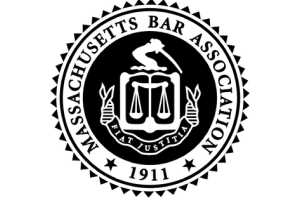Court’s Use of Zoom for Suppression Hearing Raises Constitutional Concerns in Commonwealth v. Masa
August 10, 2020
In Commonwealth v. Masa, 1981CR0307 (Mass. Super. Ct. 2020), a superior court judge overruled the defendant’s objection to conducting a suppression hearing via Zoom video conference, finding that the remote format was necessary due to the COVID-19 pandemic and would not violate the defendant’s constitutional rights. The court determined that the video conference platform, with appropriate safeguards, adequately protected the defendant’s right to confront witnesses and ensured a fair and public hearing.
Our Take:
The COVID-19 pandemic has created challenges for the legal system which the Courts likely have never contemplated.
The necessity of court hearings via Zoom has paved the way for a superior and more efficient way to conduct court business – in certain circumstances. Prior to the pandemic, it was common for attorneys and stakeholders to spend hours in the courtroom, waiting for a case to be called. Virtual hearings, on the other hand, allow these participants to remain at their offices (or homes), making valuable use of their limited time, instead of waiting idly in a courtroom. The Courts have also been able to schedule hearings with a greater degree of precision, reducing wait time.
The court system would certainly benefit from continuing to use video conferencing for non-critical stages in the proceeding.
However, the Court’s decision in Commonwealth v. Masa, completely disregards important constitutional rights, opting for a pro forma hearing at the expense of art. 12’s command that the Defendant be afforded the right “to meet the witnesses against him face to face.”
In Commonwealth v. Bergstrom, 402 Mass. 534 (1988), the SJC struck down on art. 12 grounds G.L. 278, §16D, which permitted the taking of a child’s testimony by use of simultaneous closed circuit television transmission. It held, “the plain meaning of assuring a defendant the right ‘to meet the witnesses against him face to face’ is that the accused shall not be tried without the presence, in a court of law, of both himself and the witnesses testifying against him. To interpret the words of this mandate as requiring only that the defendant be able to see and hear the witness renders superfluous the words ‘to meet’ and ‘face to face.'” 542.
It is difficult to understand how the Superior Court could overlook the clear and settled precedent which over 30 years ago forbade exactly what the Court ordered here.
The Superior Court’s conclusion that, when considering a defendant’s confrontation rights, physical presence can be denied “to further important public policy” rests on Maryland v. Craig, 497 U.S. (1990). Yet, the Court inexplicably overlooked the fact that the SJC explicitly rejected Craig on art. 12 grounds.
In Commonwealth v. Johnson, 417 Mass. 498 (1994), the SJC discussed the Supreme Court’s Sixth Amendment analysis in Craig, concluding “Unlike the Sixth Amendment … art. 12 contains an indispensable element of face-to-face confrontation of witnesses[.]” Johnson, 417 Mass. at 504. “[T]he words ‘face to face’ as used in art. 12 mean literally, ‘face to face.'” Id., at 500.
In Commonwealth v. Amirault, 424 Mass. 618 (1997), the SJC discussed Craig again: “Perhaps the Court in Craig was justified in [concluding that] the Sixth Amendment … might be served in a variety of ways and adjusted to the circumstances of the particular case … But we are not free to treat art. 12 in the same way. The Sixth Amendment’s confrontation clause is stated in brief and abstract terms … But art. 12 does not invite us to proceed by abstractions and by a weighing of values to be served by alternative ways of proceeding.” Amirault, 424 Mass. at 631.
It could not be clearer that the SJC has already rejected Judge Salinger’s theory.
The Court provides a half-page long string-cite of cases in which various courts allowed examination of witnesses by video. All of these cases are from other jurisdictions. None of these cases considered the issue under art. 12.
Elsewhere in its Opinion, the Court cites to few Massachusetts cases in support of its decision. Most of these cases predate Crawford v. Washington, 541 U.S. 36 (2004). The only post-Crawford Massachusetts criminal cases which the Court cites – Commonwealth v. Fontanez, 482 Mass. 22 (2019), Commonwealth v. Jones, 472 Mass. 707 (2015), and Commonwealth v. Adonsoto, 475 Mass. 497 (2016), are completely inapposite.
In Fontanez, the defendant had requested to remain out of view of the witness. His subsequent complaint that he could not meet the witness face to face, consequently, was meritless. Jones and AdonSoto are both cases about hearsay evidence, not about whether cross-examination in some other form can cure the denial of face to face confrontation.
Lastly, the Court cites to Doe no. 234076 v. Sex Offender Registry Bd., 484 Mass. 666 (2020), for the proposition that critical stages of a criminal prosecution can be conducted by video without violating a defendant’s due process rights. This, of course, is not a criminal case. It concerns a significantly lesser liberty interest, and therefore the flexible standard for due process has more room to bend.
In short, the Court’s decision rests on no legitimate precedent, whatsoever.
Notably, in nearby federal districts, which consider confrontation issues under the less strict rubric of the Sixth Amendment, the applicable standing orders allow for video hearings in a variety of situations, but all require the defendant’s consent, and some exclude suppression hearings even with consent. See D. Mass Standing Order 20-26; D. NH Standing Order 20-25; D. ME General Order 2020-11.
The defendant has more than just procedural rights at stake here. A Fourth Amendment challenge lies at the heart of this case. But instead of approaching this issue with the seriousness it deserves, the Court abandoned the solemn and dignified atmosphere of a courtroom in favor of phones, tablets, and laptops – devices associated with life’s most frivolous activities. These are the devices used for watching television shows, skimming through Facebook, having casual conversation, and shopping for clothes. These distractions cannot be monitored or eliminated. Consequently, there are no assurances that those who should be focusing on the hearing are not also keeping an eye on sports headlines. Even worse, because no one can police what happens off-screen, the Court can never be sure that a witness doesn’t have a cheat-sheet or coach just out of frame. A defendant’s challenge to the constitutionality of police conduct deserves greater respect and dignity.
By forcing the defendant to proceed by video, the Court reduces defense counsel’s job to that of merely asking questions, and forces the defendant to be a silent observer rather than a participant. But defense counsel does more than simply ask questions. For instance, in the midst of a hearing, counsel has valuable opportunities to discuss issues with the prosecutor, arriving at stipulations which can work to a defendant’s benefit.
Defendants have a right to be more than silent observers, also. Communication between a client and lawyer can be essential to a hearing such as this. Counsel does more than merely question the witness while a defendant sits idly. Instead, contemporaneous communications with a defendant during examination can provide insight into factual issues regarding events for which the defendant – but not his attorney – witnessed. Judge Salinger suggested that break-out rooms can ensure private attorney-client communication. But he assumes that a defendant will feel comfortable interrupting lawyers, judges, and police witnesses, to make a brief comment to his counsel. Judge Salinger also underestimates the frustration which the Court will certainly experience with a defendant who takes full advantage of the invitation to use break-out rooms, leading to repeated delays.
Judge Salinger’s hastily researched decision surely reflects the frustration the court system feels regarding the COVID-19 pandemic. Frustration, though, is an insufficient reason to deny important constitutional rights in service of speed and convenience.





